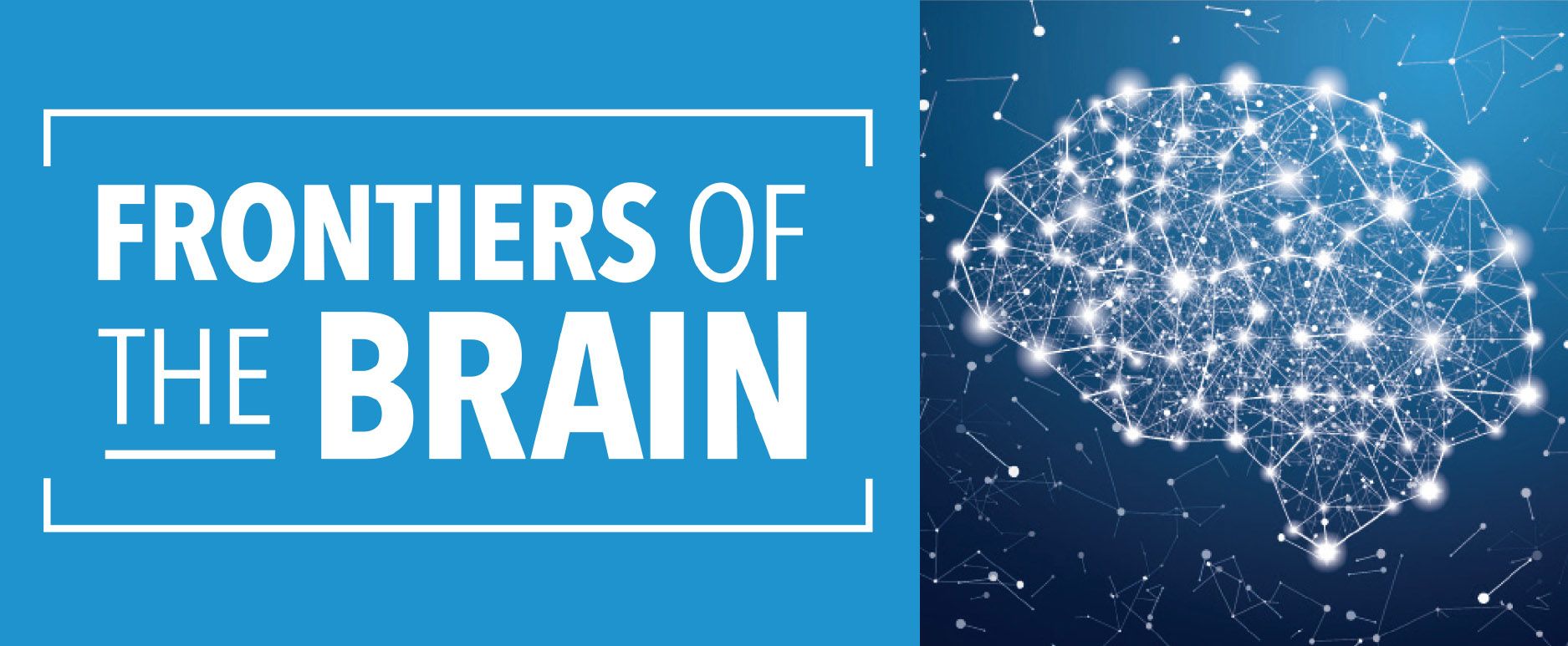Your Fantastic Mind
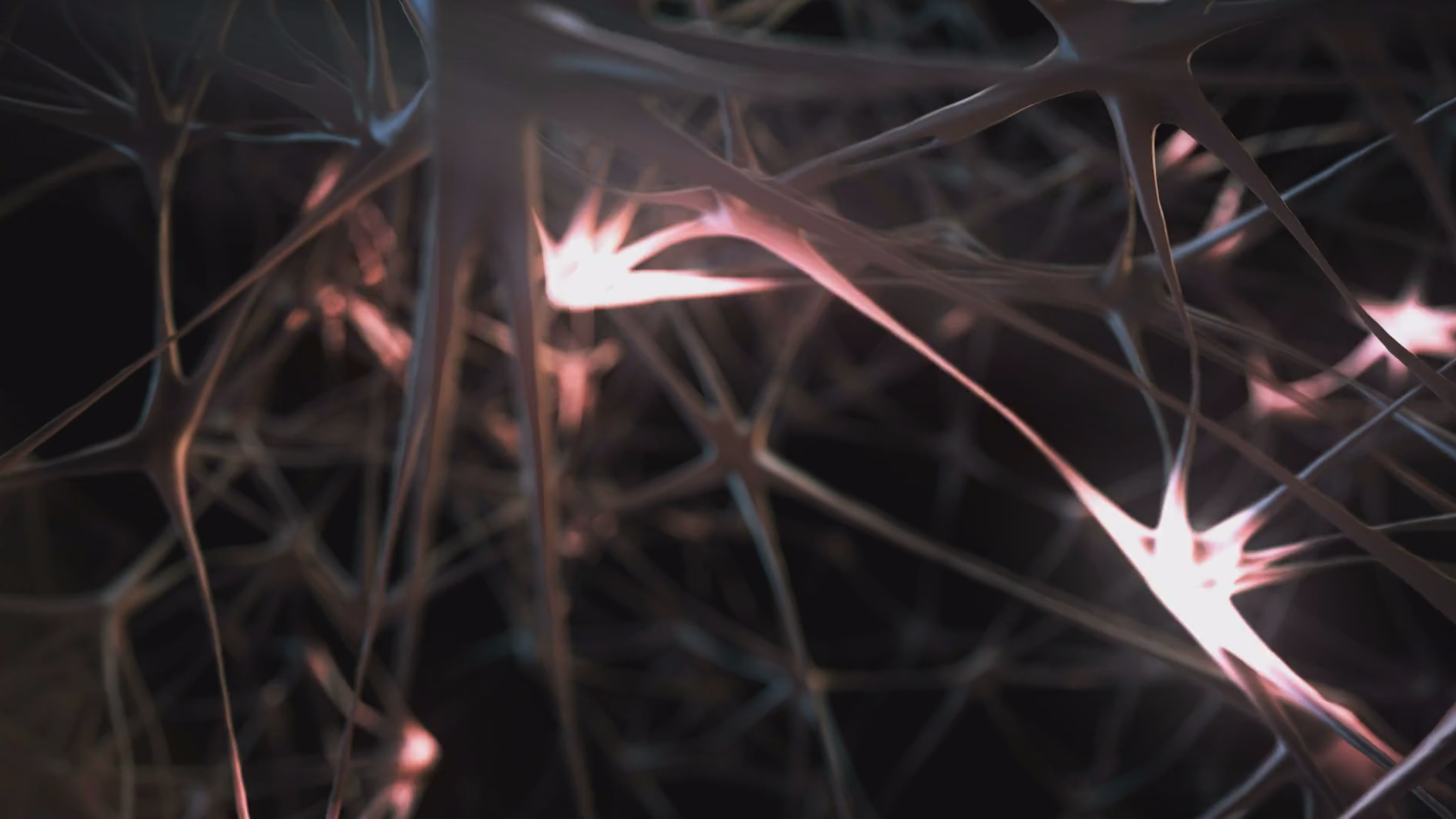
Episode 10
Delve into new treatments for sleep apnea, what happens when a reporter unexpectedly becomes part of the story, and a personal tale of love, loss, baseball, and Alzheimer's.
CLICK ON VIDEO BELOW TO VIEW THE FULL EPISODE


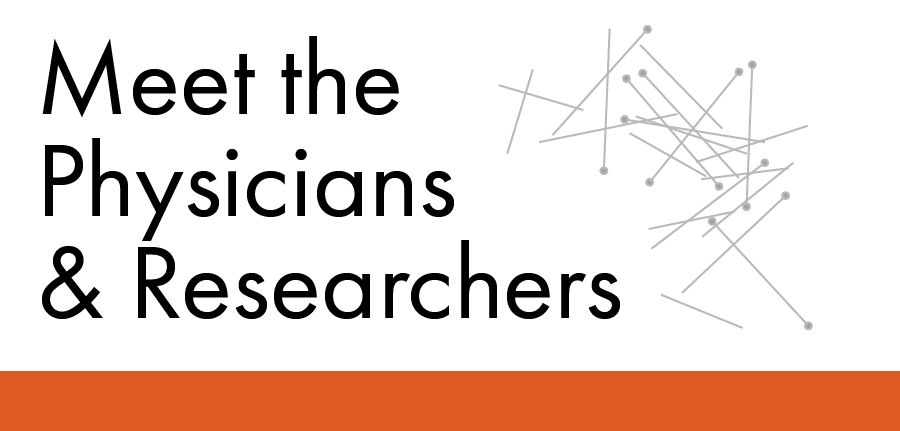
10.1 | Sleep Apnea
Raj Dedhia, Nikhila Raol, otolaryngology
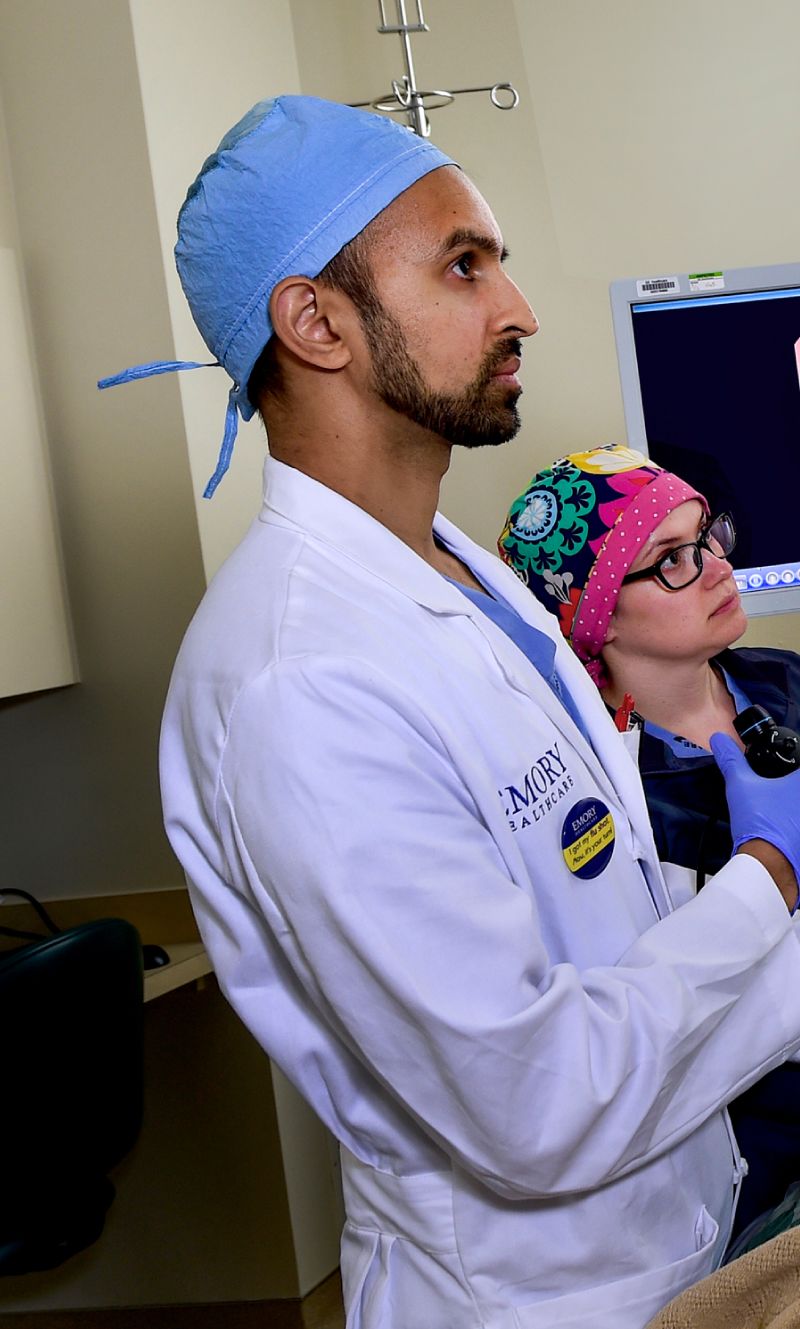
Emory otolaryngologist Raj Dedhia sometimes uses surgical options to treat patients with sleep apnea.
Sleep apnea, characterized by breathing interruptions and snoring, is the second leading cause of sleep issues. For 40 percent of children with Down Syndrome, sleep apnea can be highly dangerous, as their throats and tongues collapse, blocking their ability to breathe.
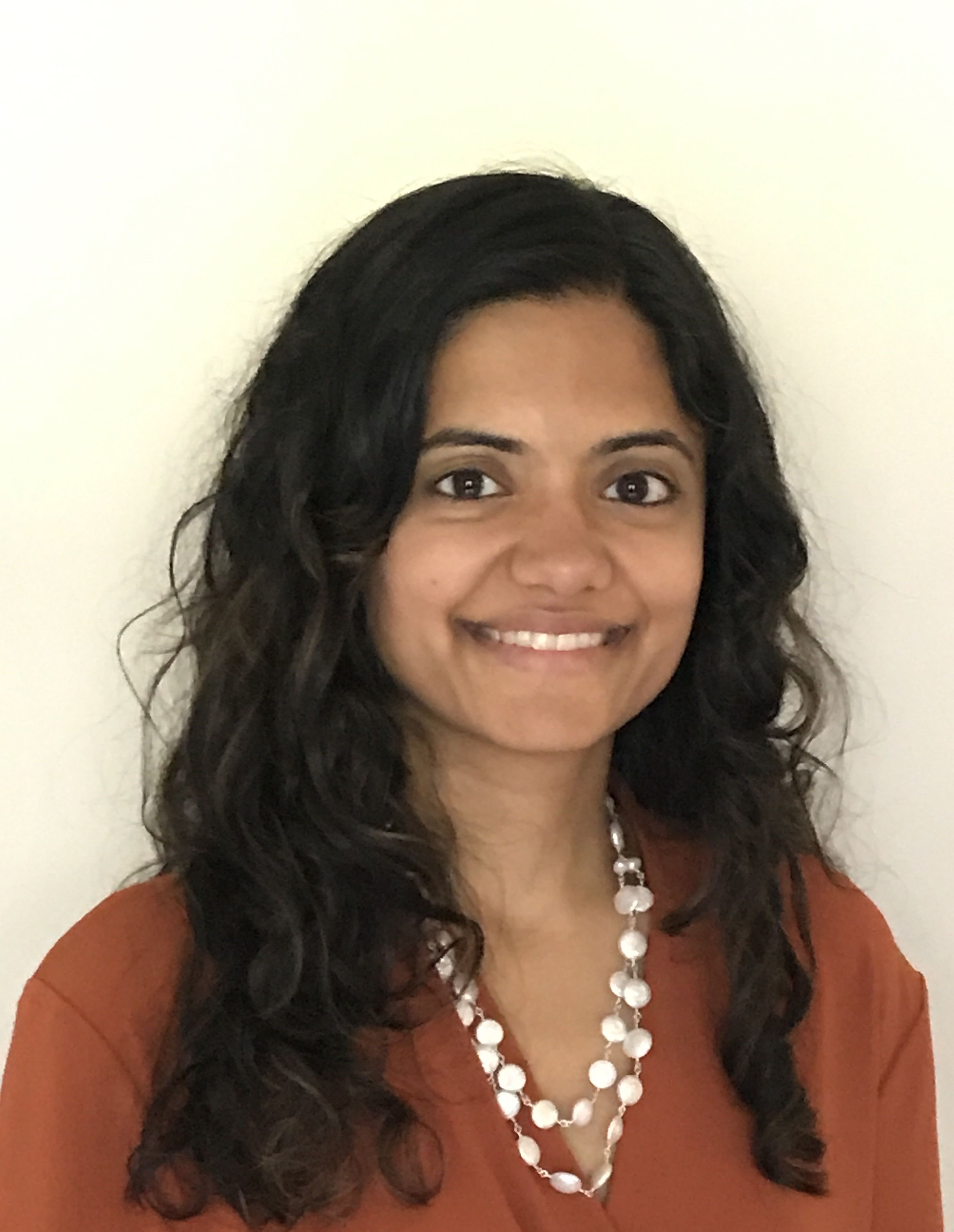
Emory pediatric otolaryngologist Nikhila Raol works with patients at Children's Hospital of Atlanta, such as young patients with Down Syndrome who have sleep apnea.
Raj Dedhia is an otolaryngologist, head and neck surgeon, and sleep medicine specialist, and Nikhila Raol is a pediatric otolaryngologist. Dedhia and Raol often see patients experiencing symptoms of sleep apnea.
“Sleep apnea is caused by both anatomical obstruction and poor neuromuscular tone during sleep,” says Dedhia. “Children with Down Syndrome have large tongues and poor neuromuscular tongue, making them particularly susceptible to sleep apnea.”
Many individuals with sleep apnea are encouraged to try a CPAP machine, a ventilation system used to keep airways open while the person is sleeping. However, for children with Down Syndrome, the CPAP machine is difficult to tolerate. Emory doctors, including Dedhia and Raol, have found a viable alternative called hypoglossal nerve stimulation. It’s known as a “pacemaker for the tongue,” and can be a game-changer for not only children but everyone with sleep apnea.
For more information about sleep services at Emory, call Emory HealthConnection, 404-778-7777, or visit the Emory Sleep Center’s website.
10.2 | The Unpredictable Brain
James Lah, neurologist

Neurologist James Lah of the Emory Brain Health Center and Healthy Aging Study.
It’s no secret that as our bodies age, we often experience more health issues. But what if we could learn something from our aging bodies to possibly help the next generation?
This is the goal of Emory’s Healthy Aging Study, the largest clinical research study ever conducted in Atlanta. Through patients volunteering to participate in the study, researchers can learn vital information about the most common types of age-related diseases: Alzheimer’s, cardiovascular disease, diabetes, and cancer.
“It gives us an opportunity to open up a huge group of participants that can be accessed by investigators in any aging-related field—whether it’s brain or heart or mobility health,” says Dr. James Lah, principal investigator of the study.
Writer Jerry Grillo, 58, was assigned to report on the study from the inside out, as a journalist and a participant. But there was an unexpected twist to the story.
Nine days after Grillo had an MRI showing his brain to be a perfectly good specimen, with healthy symmetry and no signs of distress, he suffered a cerebellar stroke.
Grillo's experience was captured in this segment of Your Fantastic Mind. The lesson? Expect the unexpected.
For more information about the Healthy Aging Study at Emory, call the Brain Health Center at 404-727-4877, or visit healthyaging.emory.edu.
10.3 | Love, Loss, Alzheimer's, and Baseball
Allan Levey, neurology
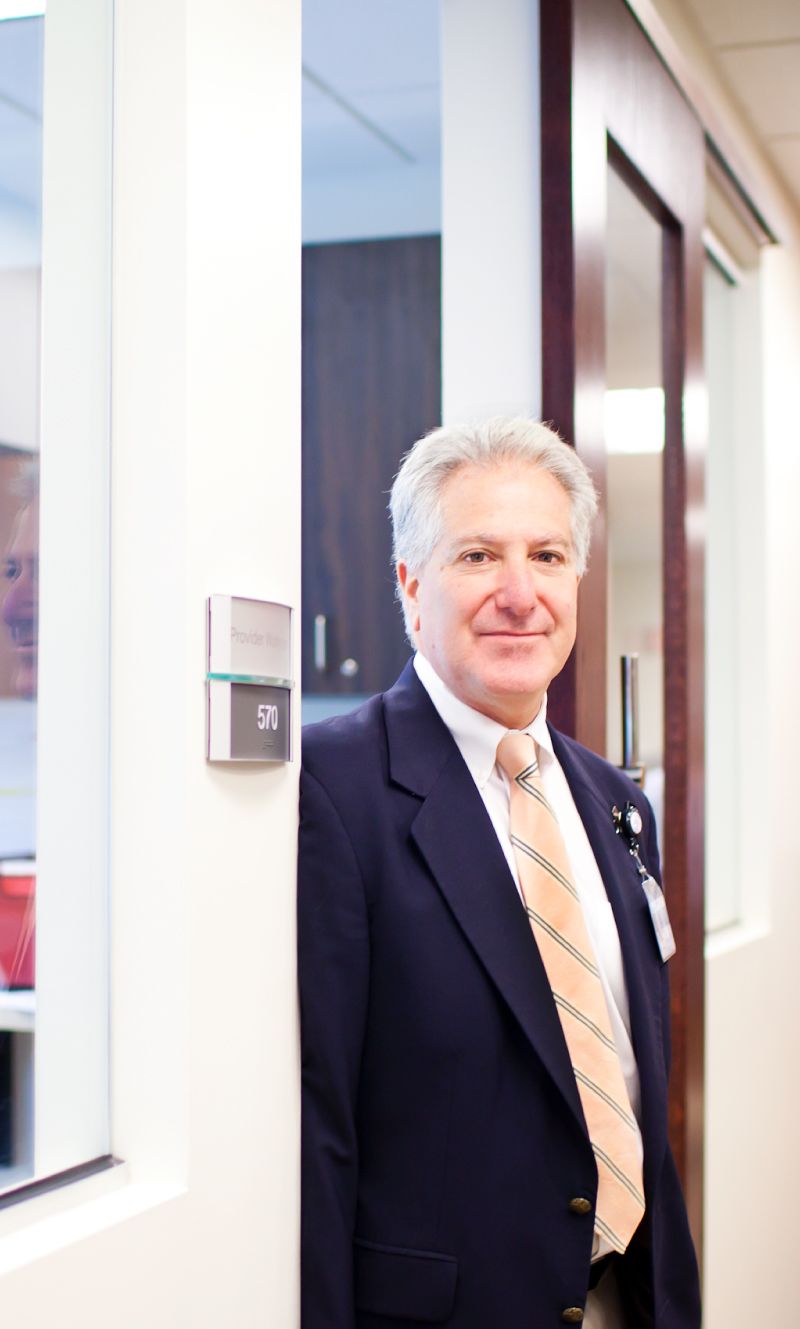
Allan Levey is professor and chair of neurology at Emory and director of the Emory Alzheimer's Disease Research Center.
Affecting an estimated 5.7 million people in the United States alone, Alzheimer’s disease is one of the most common diseases, yet it has no known treatment that is effective at slowing the progression.
“Nearly one in every two people over the age of 85 have Alzheimer’s disease,” says Allan Levey, director of the Emory Alzheimer’s Disease Center and professor and chair of the Department of Neurology. “There’s a tsunami coming at us, and we can’t just ignore it.”
As large as the crisis is, it plays out in deeply personal ways, such as the three Klein brothers, who lost their father to Alzheimer’s disease and traveled to Washington, D.C., to spread his ashes at the old Washington Senators baseball stadium.
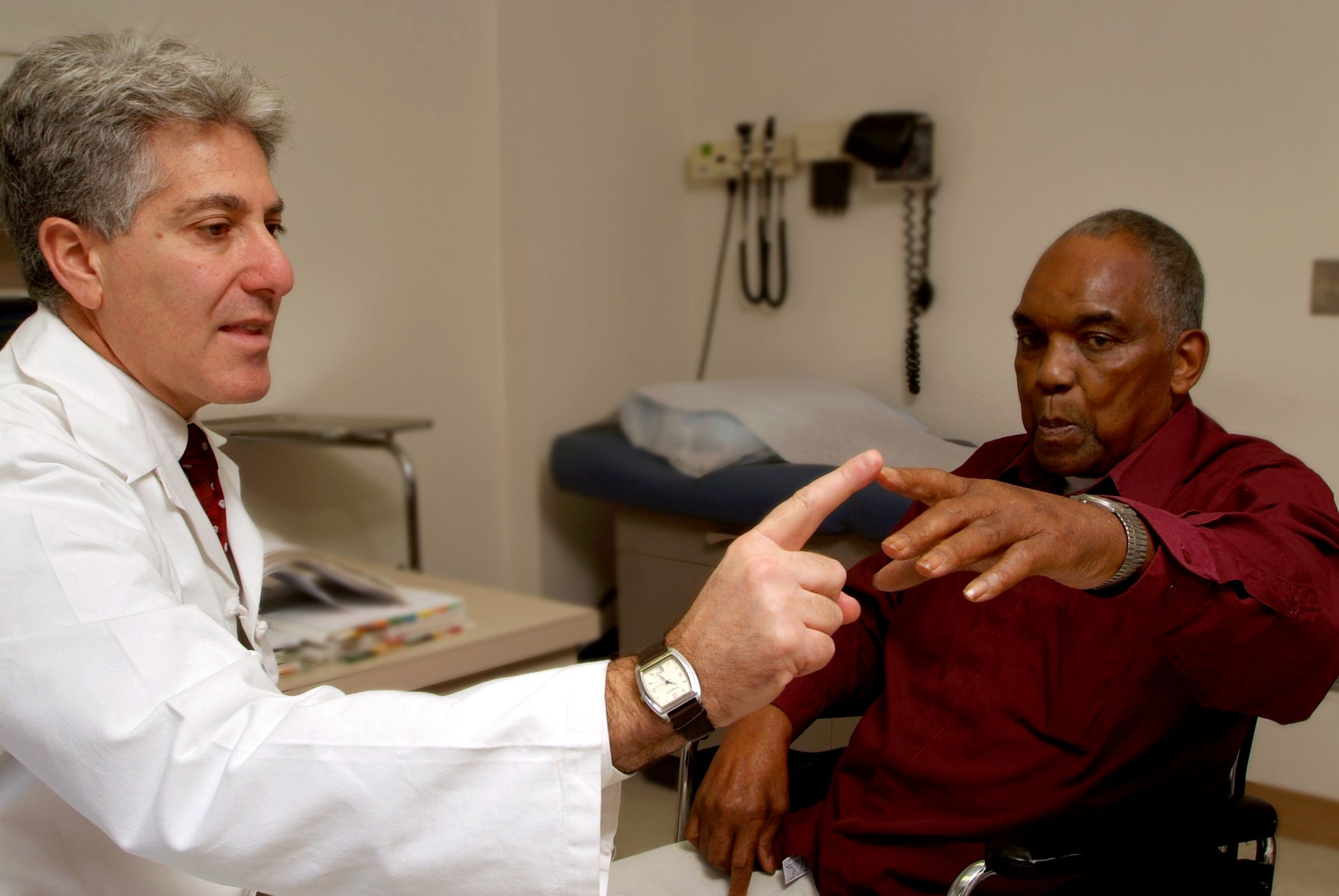
Dr. Allan Levey works with patients who have or may be developing Alzheimer's disease.
Dr. Allan Levey works with patients who have or may be developing Alzheimer's disease.
The Goizueta Alzheimer’s Disease Research Center at Emory is one of 27 active centers supported by the NIH in the nation and is dedicated to innovative research and compassionate care of patients with Alzheimer’s.
And, although there is no cure for Alzheimer’s disease, Levey talks about risk factors and ways of preventing the disease.
“Alzheimer’s disease has complex origins in both genetic and environmental factors,” says Levey. “We do know that some things like high blood pressure and cholesterol are risk factors for Alzheimer’s. But those aren’t cause and effect; they are associations.”
For more information about the Goizueta Alzheimer’s Disease Research Center at Emory, call Emory HealthConnection, 404-778-7777, or visit alzheimers.emory.edu.

Emory otolaryngologist Raj Dedhia sometimes uses surgical options to treat patients with sleep apnea.
Emory otolaryngologist Raj Dedhia sometimes uses surgical options to treat patients with sleep apnea.

Emory pediatric otolaryngologist Nikhila Raol works with patients at Children's Hospital of Atlanta, such as young patients with Down Syndrome who have sleep apnea.
Emory pediatric otolaryngologist Nikhila Raol works with patients at Children's Hospital of Atlanta, such as young patients with Down Syndrome who have sleep apnea.

Neurologist James Lah of the Emory Brain Health Center and Healthy Aging Study.
Neurologist James Lah of the Emory Brain Health Center and Healthy Aging Study.

Allan Levey is professor and chair of neurology at Emory and director of the Emory Alzheimer's Disease Research Center.
Allan Levey is professor and chair of neurology at Emory and director of the Emory Alzheimer's Disease Research Center.
Brain Research at Emory
As one of the nation’s premier research universities, Emory is a leader in education, discovery and patient care related to the neurosciences. Faculty scholars, scientists, physicians and clinicians throughout the university and Emory Healthcare collaborate on advancing knowledge associated with the brain and brain health.
The Emory Brain Health Center combines neurology, neurosurgery, psychiatry and behavioral sciences, rehabilitation medicine and sleep medicine in a unique, integrated approach.
Researchers are predicting, preventing, treating and curing diseases and disorders of the brain and addressing the growing global crisis associated with some of the most common ones.
Emory’s neuroethics program explores the evolving ethical, legal and social impact of the neurosciences while the Yerkes National Primate Research Center conducts essential basic science and translational research to advance scientific understanding and to improve the health and well-being of humans and nonhuman primates.
Emory’s comprehensive, multidisciplinary approach is transforming the world’s understanding of the vast frontiers of the brain, harnessing imagination and discovery to address 21st-century challenges.

Want to know more?
Please visit Emory's Frontiers of the Brain website, the Emory News Center, and Emory University.


